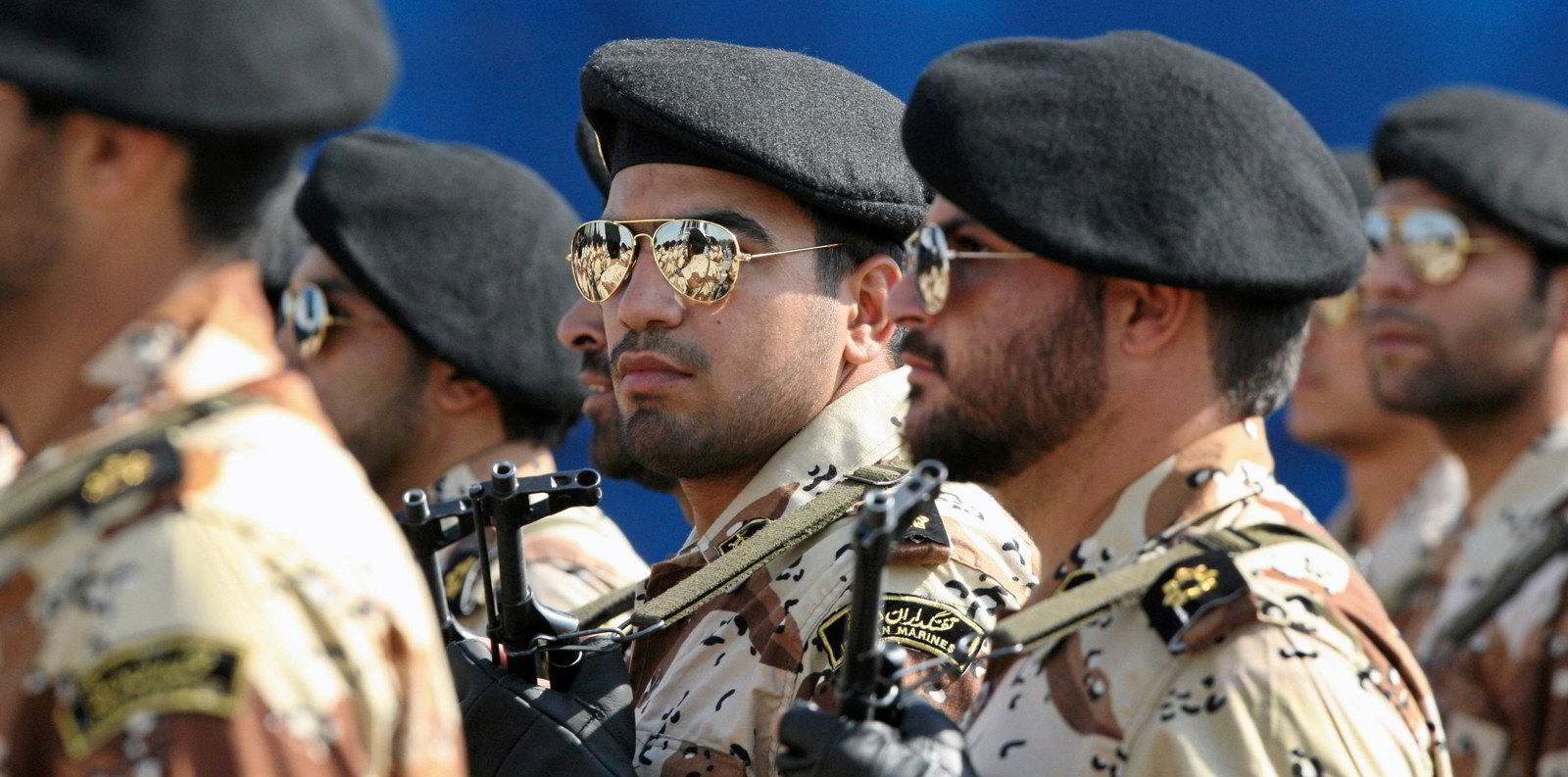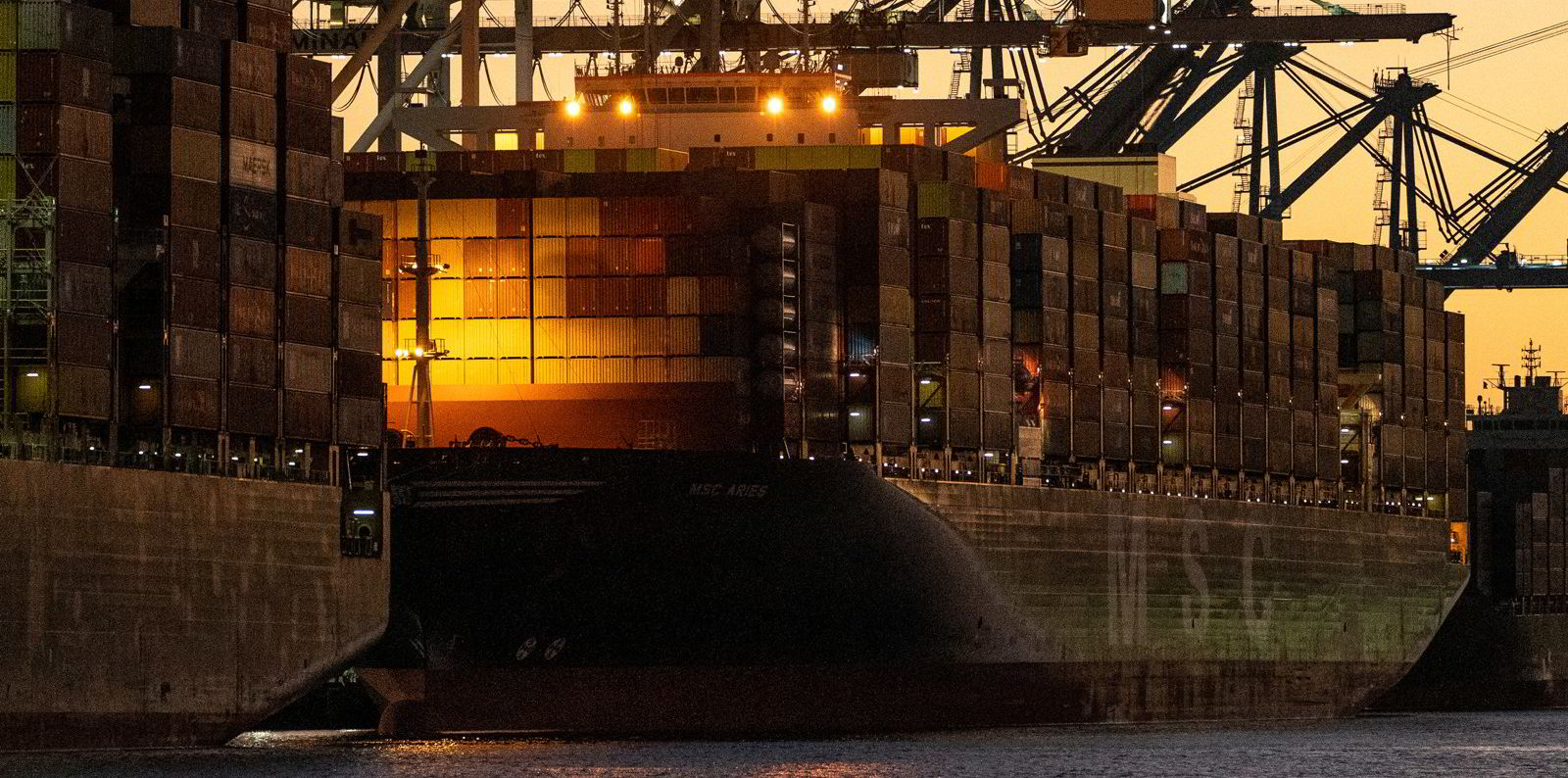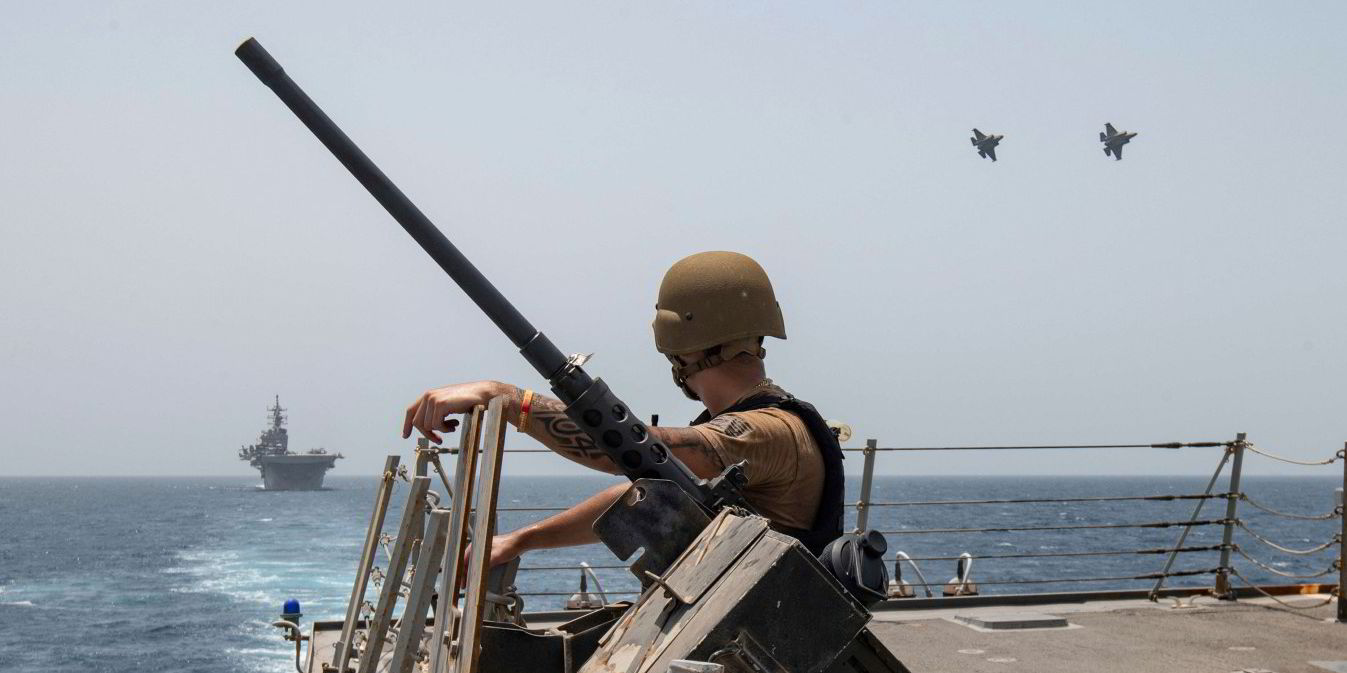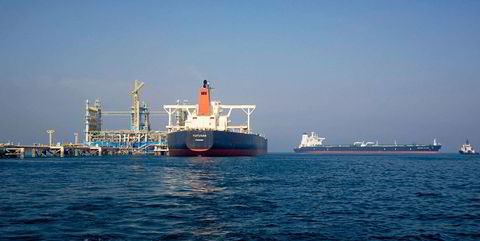During Britain’s fractious fight over Brexit, the business world had one overriding desire: End the uncertainty.
The long campaign, the known and unknown impacts of Britain’s departure from the European Union and the knife-edge polls before the 2016 vote, all created what economists described as a state of low-grade persistent uncertainty.
That uncertainty hits investment. More than two-thirds of business leaders in Ireland alone said the issue affected their strategic planning.
Now, eight years on from the Brexit vote, the permanent state of uncertainty for shipping has gone global thanks to Russia, its opponents, the Israeli war with Hamas and all the cascading impacts that flow from it. And then add to the pot, China’s uncertain economic recovery and the energy transition.
The impact on the industry is likely to be how it has always been — with big winners, big losers and sometimes both in the same week.
Uncertainty has its own measure. The International Monetary Fund calculates its own “World Uncertainty Index” by counting the use of the word in country reports by the Economist Intelligence Unit.
There were peaks in 2016 after the election of Donald Trump and Brexit, in 2020 after the declaration of the global pandemic and two years later after Russia invaded Ukraine.
“The shocks that have shaken the global economy in recent years have introduced a new normal for turbulence, driven in some cases by political fragmentation between countries,” it said in a blog last year.
“These episodes have also lifted uncertainty to exceptionally high levels, which in turn hurts economic growth.”
The index in the first quarter of 2024 has fallen from the highs of last year, but the latest developments suggest an oversized impact on the maritime sector. And not all uncertainties are equal.
Assessing the impact
At the forefront of shipping minds is the geographical fragmentation identified by the IMF. The obvious impacts of the Houthi attacks in the Red Sea are increased costs from security, war risks and the devastating human and financial impact of a successful strike.
On the flip side, there is increased tonne-mileage with a majority of vessels rerouting via the Cape of Good Hope.
Some are affected more than others. Houthis have made clear that their targets in the southern Red Sea are linked to the US, UK and Israel’s allies — though errors have been made with Chinese and Russia-linked shipping also targeted.
Iran’s weekend attacks on Israel add a new layer to the dispute. That the majority of missiles were shot down and Iran signalled beforehand that its response would be minimal, reduced tensions, reflected in the oil price that moved little on the first day of trading after the attacks.
But researcher Elisabeth Braw has argued that the tensions come amid a backdrop of increased state-backed attacks on shipping, increasingly perceived as the soft underbelly of national interests.
That was underscored by TradeWinds on Wednesday publishing a satellite image of four vessels held off the coast of Iran that have been seized by Iranian forces, the latest the MSC Mediterranean Shipping Company-chartered container ship MSC Aries this month.
For now, the next steps of Israel — and Iran — are being keenly watched for their broader impacts. Analysts suggested that some operators will add the Strait of Hormuz to the Red Sea on their list of areas to avoid after the seizure of the 15,000-teu MSC Aries (built 2020) and Iran’s hint that it could further disrupt shipping in the strategically vital area.
Danger of miscalculation
Israel’s allies have urged caution. UK foreign secretary David Cameron — no stranger to uncertainty after calling the Brexit poll and then resigning as prime minister on losing — said this week that the “smart and tough” choice for Israel would be to focus on Gaza and recovering its hostages. He warned of the “danger of miscalculation” with unforeseen impacts of any retaliation.
But it is the Western response to these crises — in large part through sanctions — that has provided some of the biggest uncertainties and costs.
In addition to forcing companies to bolster their compliance departments, the tactic of “maximum opacity” within those financial regimes leaves those still connected to trades second-guessing enforcement action.
Industry players that dived in early to post-invasion Russian oil trades made fortunes.
Some that have now been snared by sanctions rulings are counting the cost. They include those targeted by Cameron’s foreign ministry who say they have followed all the rules on securing documentation and price caps and are furious at the damage they cause.
And then we toss in the added long-term uncertainty of the energy transition. Uncertainty over the choice of new fuels has made owners wary of investing in newbuildings. That has contributed to a tonnage crunch in sectors such as tankers that have helped to boost rates for owners.
Welcome to the “new normal” era of turbulence and uncertainty.
Read more
- US treasury secretary threatens new sanctions against Iran oil exports ‘in the coming days’
- US under pressure to hit Iranian shadow fleet exports
- Potential Hormuz Strait closure could prove much more significant than Red Sea disruption
- Amid outrage over Iranian seizure of container ship, focus switches to release of crew
- Iran ship seizure sparks tensions, leaving oil and tanker markets on alert







